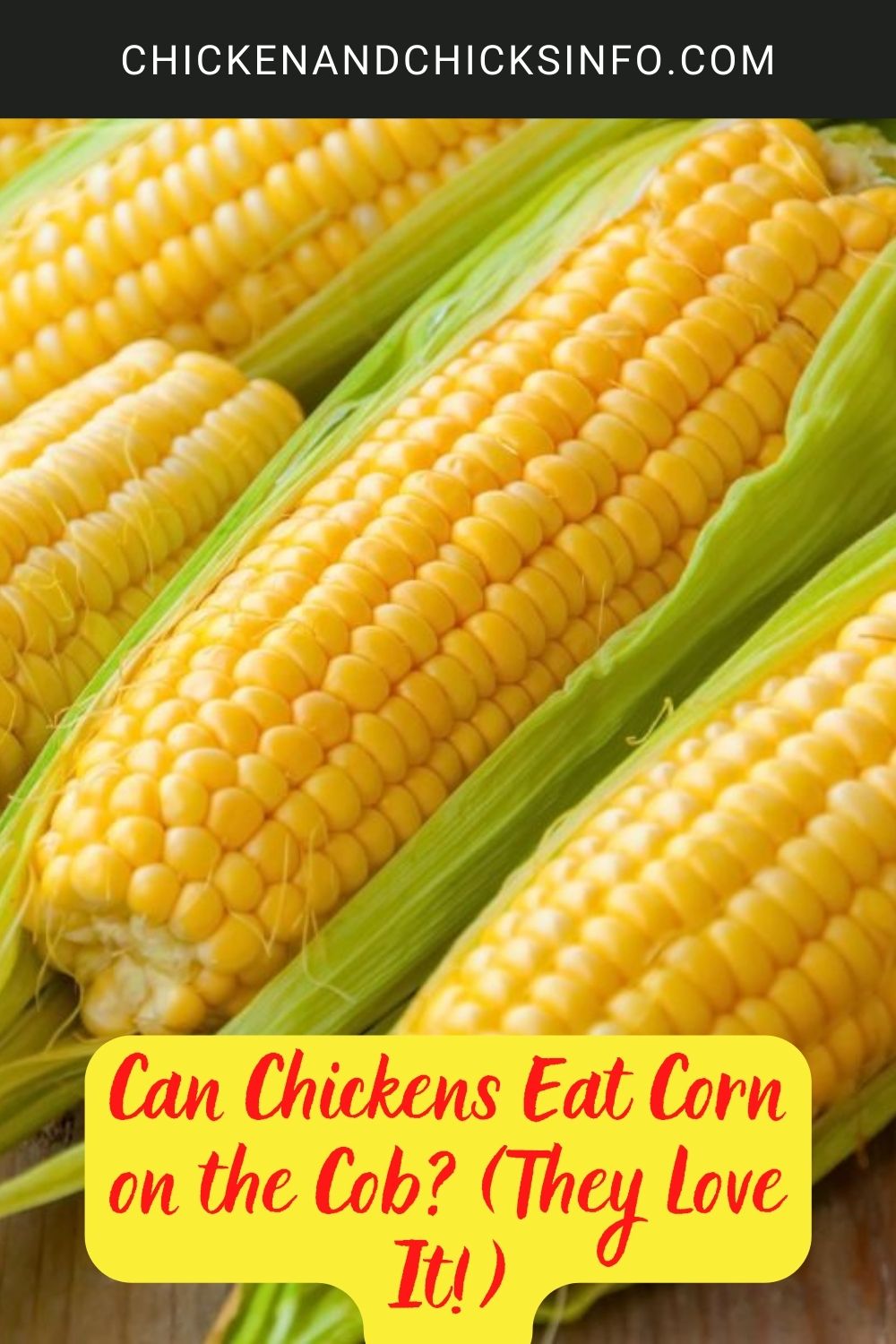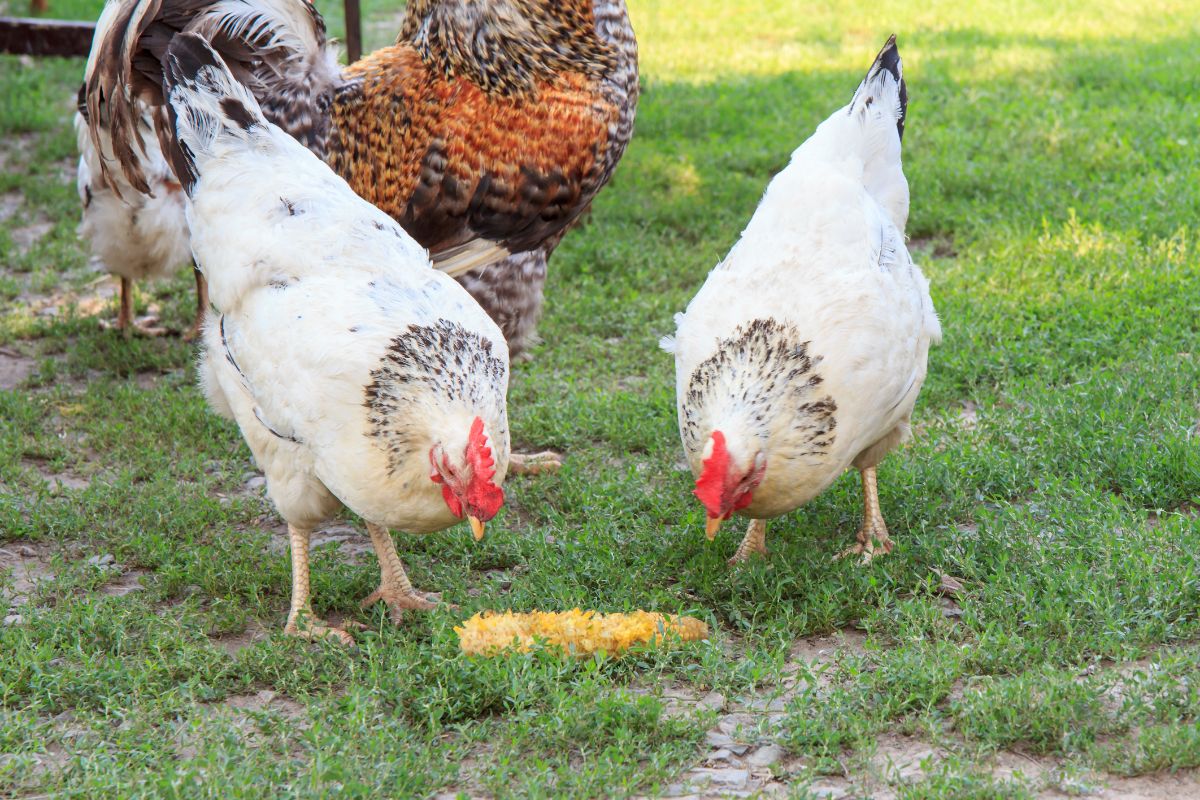
Absolutely, if you give your flock an ear of corn on the cob, they are going to be more than happy. It’s fun to watch them strip a cob and eat it by pecking away. Corn is a good “fuel” food, and it encourages their natural scratching behavior.
Jump to:
Can Chickens Eat Raw Corn on the Cob?
Yep, you don’t have to cook corn before giving it to your chickens.
They can eat it raw, cooked, from the can, cracked corn, fresh, even frozen. In whatever form you give them corn, they’re going to eat it.
A lot of owners choose to give their chickens corn on the cob as it’s so easy. You just throw them an ear - that’s what the cob is called - and leave them to peck away at it.
It’s fun to hang one up too. It’s surprising how much chickens seem to enjoy having something to chase and play with, so I always hang food at every opportunity.
Is Corn Hard to Digest for Chickens?
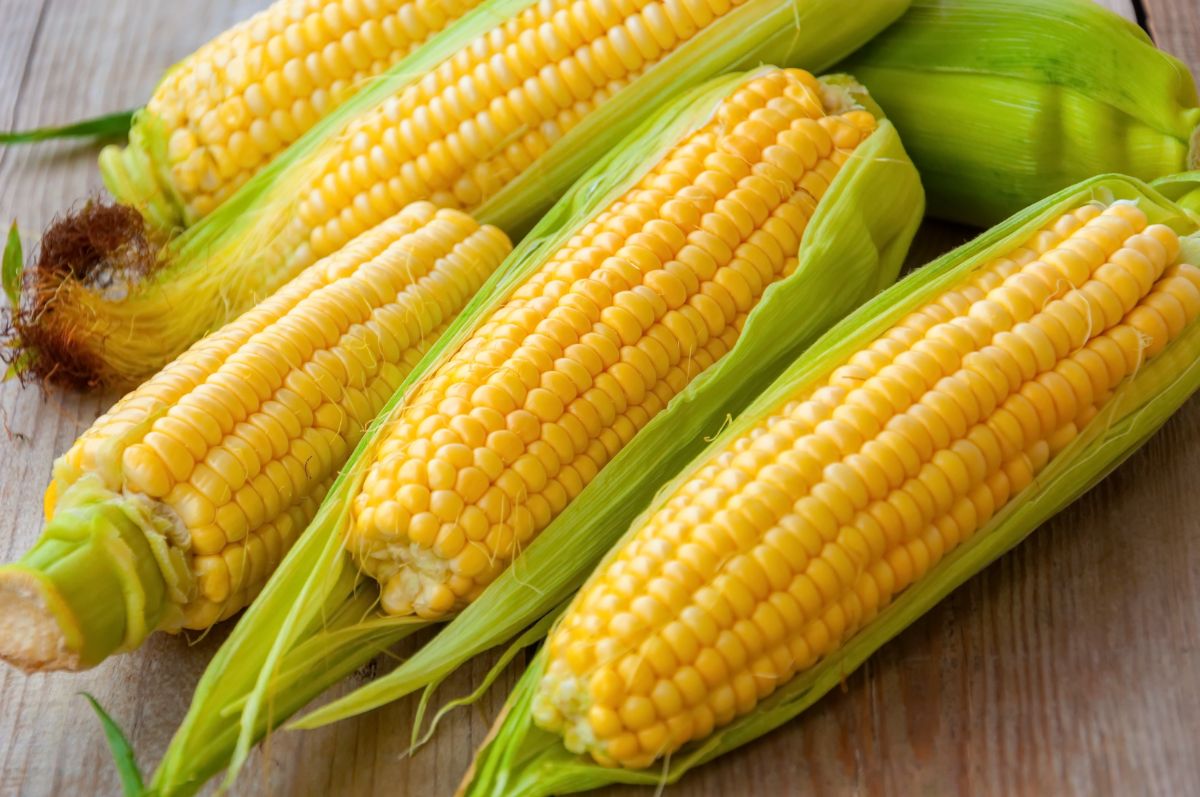
Corn is notorious for making its way through our digestive system and being visible in our poop.
It’s a gross topic to talk about, but it’s not a secret.
I know some of you are wondering if you’re going to spot lots of undigested yellow corn shells in your chicken’s poop, right?
I’ve never noticed it. I don’t know from a scientific standpoint if chickens are able to completely break down and digest the corn shells, but it appears so to me.
Either way, chickens do not have any issues eating and digesting corn, so you have nothing to worry about.
Don’t forget, chickens have a very different digestive system from us. They don’t have teeth, instead, they have something called a gizzard that munches up their food.
The gizzard is a large muscle that basically contracts and “chews” up food. This is why chickens also eat grit, the grit is needed to provide a rough and strong substance to grind up the food.
Take it from me, corn doesn’t stand a chance of surviving their gizzard. It gets chewed up into small pieces and passes through their small intestine where the nutrients are absorbed.
Related - Can chickens eat whole corn?
What's a Well-Balanced Diet for Backyard Chickens?
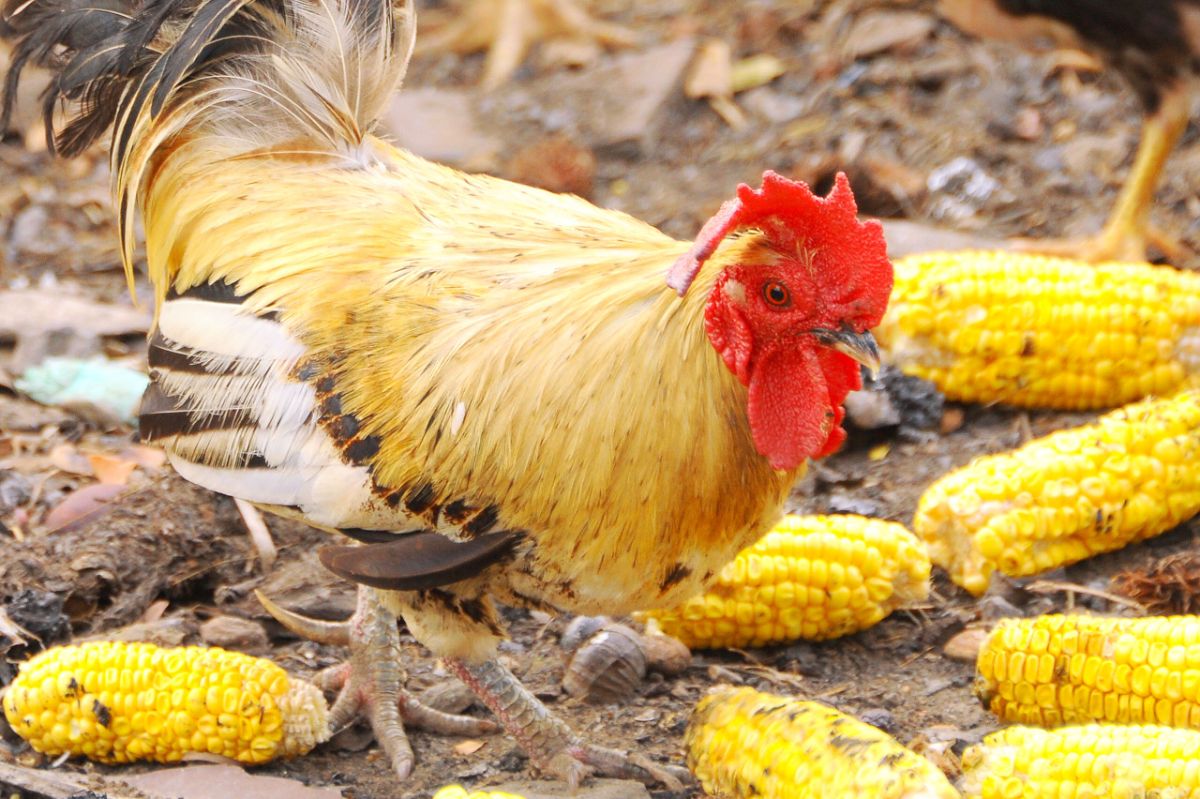
Feeding your chickens a well-balanced diet is important to ensure they stay healthy and lay big, delicious eggs on a regular basis.
The main part of a chicken's diet comes from a good commercial feed. This is going to make up at least 90% of their overall diet and will provide them all the important nutrients they need.
Commercial feeds typically come in crumbled or pelleted form. It’s really easy to feed them, just top up their feeder twice a day and they’ll graze as and when they need.
In addition to a poultry feed, you can also give your chickens table scraps, fruits, vegetables, grains, and other foods.
As long as you’ve done a quick check to ensure the foods are safe for them. There are some foods that are potentially toxic (I’ll cover some below), so it’s always worth quickly checking.
Then there’s grit. Chickens need to eat grit to help them digest food as I covered above.
Some Other Foods That Are Good for Chickens
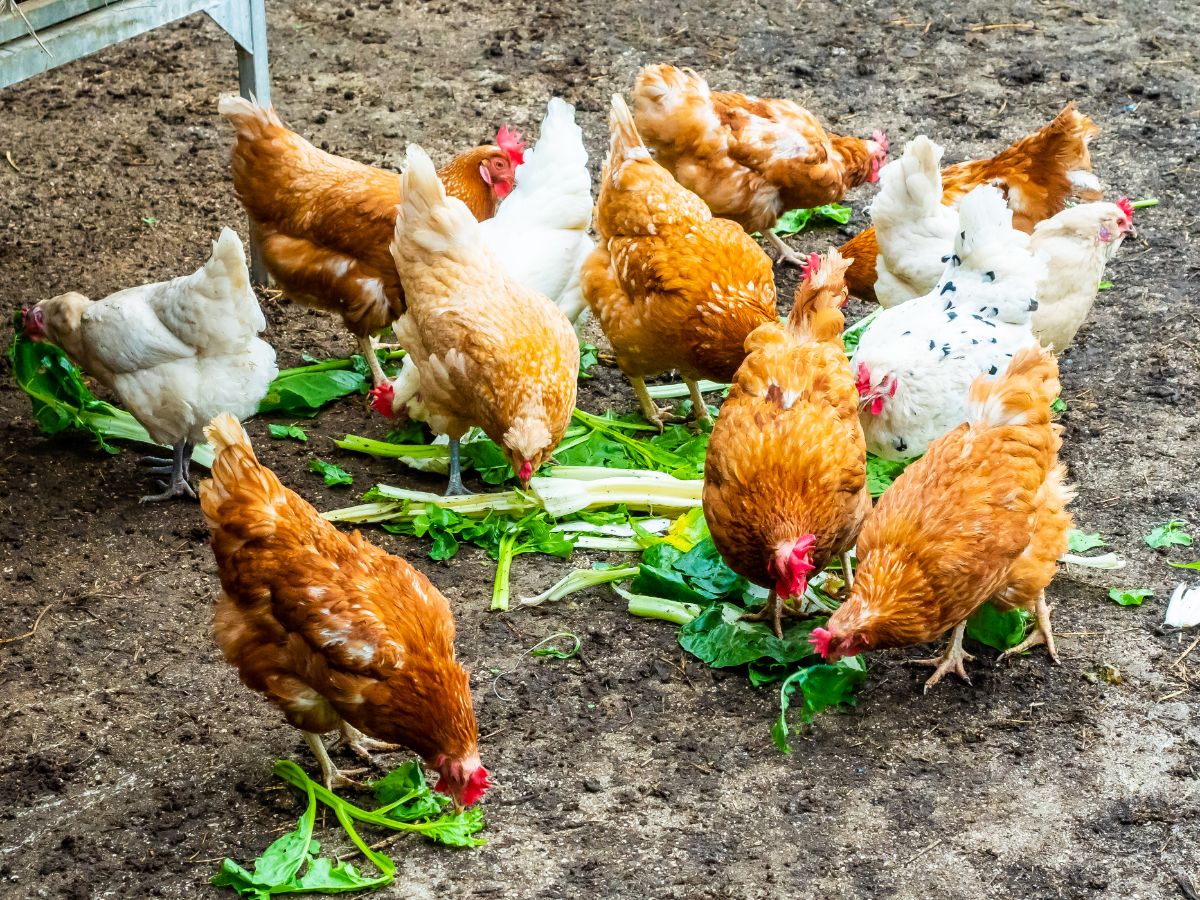
Feeding chickens scraps is one of the most rewarding and fun parts of raising backyard chicks.
Here are some of foods owners commonly share with the chickens that are good for them:
Vegetables – Most vegetables are fine. As long as they’re fresh and healthy for us, they’re going to be good for your chickens. Some of the best are cabbage, broccoli, carrots, etc.
Fruits – Most fruits are fine and are packed with loads of good nutrition chickens can benefit from. I’d say some of the most popular fruits are bananas, figs, apples, orange, berries, and melons.
Grains – Grains (like corn) are a staple in most commercial chicken feed and scratch mixes. They provide a good range of nutrition, are a good source of energy, and promote their natural foraging behavior. Grains like wheat, quinoa, or oats are awesome.
Foods Chickens Should Not Eat
As I mentioned above, it’s important to know which foods your chickens should be avoiding.
This isn’t a complete list, but here are some of the most common foods that owners are not usually aware of being dangerous:
Raw Beans – Unless properly cooked, most beans are very toxic to chickens, even fatal in small amounts.
Chocolate – There are compounds in chocolate that are toxic to chickens; theobromine and caffeine. These are also toxic to most household pets and small animals.
Tea and Coffee – I love my tea and coffee, it’s a shame I can’t enjoy a cuppa with my flock. Tea and coffee also contain caffeine, and coffee contains theobromine. So, it’ll come as no surprise that these beverages are also toxic to chooks.
Green Tomatoes and Potatoes – It’s always said in the community that potatoes are toxic to chickens. The fact is, however, that it’s only when potatoes and tomatoes are green that they’re harmful.
When they’re green it’s a sign that they’re producing a toxin called solanine. They do this to ward off bugs from eating them, it’s powerful enough to affect chickens and us though so beware.
Avocado Pits/Skin – The dangers of avocado is well-known to most pet owners. The flesh is fine, but the pits and stones of avocados contain a toxin called persin.
Sugary, Greasy, Fatty Foods - All the foods that your doctor would recommend you cut down on - don’t give them to chickens. Stuff like fast food, soda drinks, candy, etc are bad for chickens and hard for them to digest properly.
In Summary - Can Chickens Eat Corn on the Cob?
Corn on the cob, corn off the cob, it doesn’t matter. Corn is fine for chickens; it’s not going to be new to them as it’s commonly used in their commercial feeds for its nutritional value.
If you’re giving some to your chickens just make sure it’s a treat at the end of the day.
As long as they’re getting all of their dietary requirements met by a good commercial feed, you can enjoy treating your flock.
